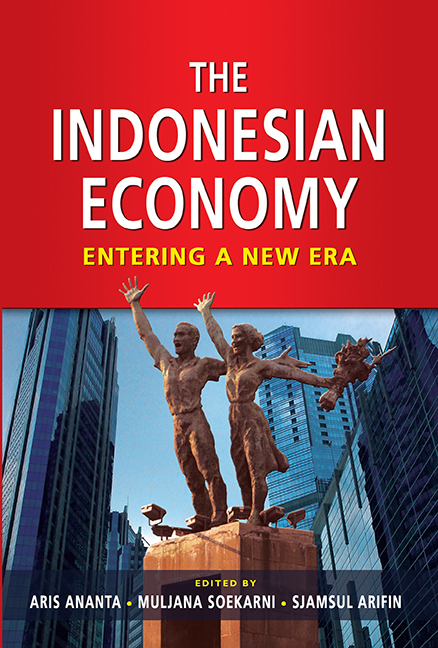Book contents
- Frontmatter
- Contents
- List of Tables
- List of Figures
- Message from the Deputy Governor of Bank Indonesia
- Message from the Director of the Institute of Southeast Asian Studies
- Foreword
- Preface
- Contributors
- PART I INTRODUCTION
- PART II MONETARY AND FISCAL POLICIES
- PART III DOMESTIC ECONOMY
- PART IV SEARCH FOR NEW PARADIGMS
- Index
Message from the Director of the Institute of Southeast Asian Studies
Published online by Cambridge University Press: 21 October 2015
- Frontmatter
- Contents
- List of Tables
- List of Figures
- Message from the Deputy Governor of Bank Indonesia
- Message from the Director of the Institute of Southeast Asian Studies
- Foreword
- Preface
- Contributors
- PART I INTRODUCTION
- PART II MONETARY AND FISCAL POLICIES
- PART III DOMESTIC ECONOMY
- PART IV SEARCH FOR NEW PARADIGMS
- Index
Summary
The Institute of Southeast Asian Studies (ISEAS) produces research and policy papers on social, political, and economic issues in the region. As part of its work, it interacts with scholars outside ISEAS, including those in regional institutions. This interaction widens and deepens the studies that ISEAS conducts. For a country study, it works with experts from the country concerned.
This book is the result of our collaboration with Bank Indonesia (BI), the Central Bank of Indonesia, which shared with us not only expertise but also the financing of the research.
This book is important because Indonesia is ASEAN's biggest country in terms of population and national income. It has become an attractive market and production base in ASEAN and, indeed, in the rest of the world. The 1997–98 Asian crisis and the recent 2008–09 global crisis have affected Indonesia in different ways. Indonesia today is different from Indonesia forty years ago or even ten years ago. Moreover, what Indonesia does can have significant social, political, and economic implications for the region and the rest of the world.
This book does not discuss all issues relating to the Indonesian economy but contributes to better insights into the direction in which the Indonesian economy is moving. Reflecting cross-border collaboration, it is a product of formal seminars, meetings and conferences conducted in both Singapore and Jakarta, in addition to many informal meetings held among the three editors in Singapore and Jakarta. Comments on the draft of the book came from ISEAS, BI and other institutions. The fact that some of the authors are involved in policy-making in Indonesia gives this book added importance as a contribution to research and policy-making.
I would like to thank Aris Ananta, an economist and Indonesianist at ISEAS, who coordinated the research and is one of the editors of the book. My appreciation also goes to Bapak Muljana Soekarni, who initiated this collaboration and is also one of the co-editors. I would also like to acknowledge the contributions of Bapak Sjamsul Arifin, who joined the team of editors.
- Type
- Chapter
- Information
- The Indonesian EconomyEntering a New Era, pp. xv - xviPublisher: ISEAS–Yusof Ishak InstitutePrint publication year: 2011



